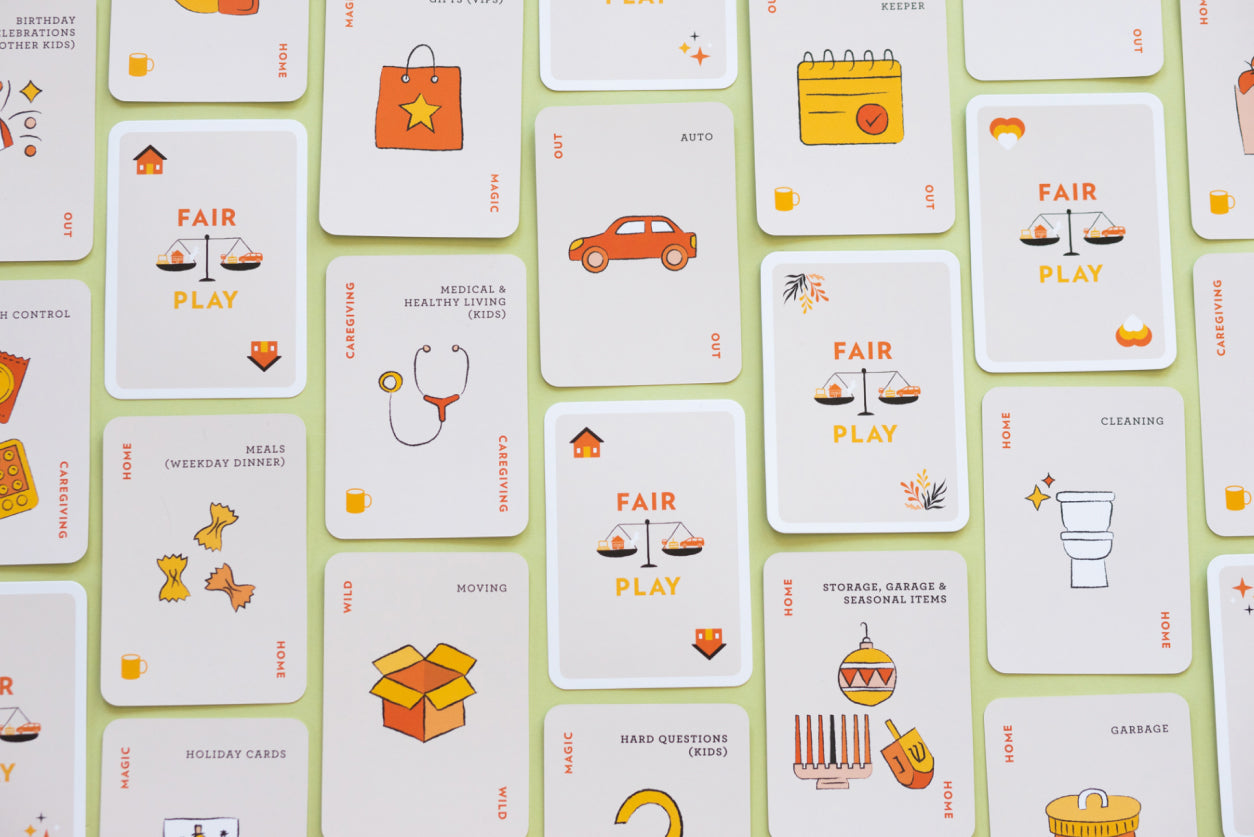There’s a domestic imbalance among families in the United States, and it has serious implications.
In its first-ever cognitive labor study, Fair Play, an organization dedicated to redistributing parenting responsibilities at home, reports that mothers perform a whopping 72.57 percent of cognitive labor in the household. (If that’s not enough, 63.64 percent of the physical labor falls on them, too!) While you might have felt this disparity in your own home, the Fair Play study cements it. From organizing playdates to managing childcare responsibilities and logistics, this disproportionate mental load of motherhood is taking a toll on mothers everywhere, correlating with higher levels of depression, burnout, and stress, and it’s wreaking havoc on physical health, relationship satisfaction, and overall well-being.
Here’s the good news. At Nanit, we've witnessed firsthand how technology can help equalize the burden of caregiving. With a nearly balanced user base—42% dads and 58% moms—our products equally engage both fathers and mothers and ensure both parents play an active role in caregiving. Along with Fair Play and other like-minded brands, we're proud to be part of the conversation around the mental load of motherhood. By combining the Fair Play Method with our smart solutions, we can create more balanced homes that reduce stress and improve family life.
What is ‘Mental Load’ and Why Does It Matter?
First, let’s dive into mental load and why it’s important. Mental load refers to the invisible cognitive labor involved in managing household tasks and parenting responsibilities. It's texting with the babysitter all day in between meetings, or providing endless paperwork for daycare. It’s the constant thinking, planning, and remembering that often falls on mothers in some sort of “default” capacity. It’s this invisible mental labor, in conjunction with the physical demands of parenting duties, that can lead to feelings of overwhelm and resentment.
That’s where Fair Play comes in. Developed by Eve Rodsky, the system addresses the mental burden imbalance by offering strategies and resources to treat household labor with the same intentionality and structure as we do at work. Studies show that by focusing on clearly defined roles, equitable task distribution, and the recognition of care work's value, Fair Play’s framework helps families create a more harmonious approach to caregiving and household management, which leads to fewer instances of depression, burnout, and greater improved relationships.
Fair Play’s Method for Reducing Mental Load
Treat Your Home As Your Most Important Organization with clearly defined roles:
Fair Play introduces the concept of running your household like a successful organization. Instead of assuming tasks will get done, the Method encourages partners to assign clear roles, rather than shared responsibilities. Each "task" becomes a "card," and every card is owned fully by one person—from conception, and planning, to execution (finishing it). This eliminates the common frustration of partial accountability and ensures that every role is acknowledged.
Elevate the value of care work:
The Fair Play Method highlights the often-overlooked importance of care work, such as parenting, emotional labor, and household upkeep. It reframes these tasks as essential contributions to a thriving family, equal in value to paid work. By redefining these roles as meaningful and worthy of recognition, the method fosters respect for the mental load (also known as invisible work) that sustains a household.
Provide tools to balance household responsibilities more equitably:
The Method offers practical tools to help families identify, divide, and manage responsibilities. This framework encourages open conversations about individual strengths, preferences, and workloads. The goal is to achieve a balance where both partners feel their contributions are fair (not 50/50) and their efforts are valued, reducing resentment and creating harmony at home.
Where does Nanit come in?
Like Fair Play, Nanit is committed to empowering families and fostering shared caregiving through our suite of solutions, each designed to reduce the mental burden and enable a shift in parent equity and increased father involvement.
Nanit fosters domestic balance by engaging parents equally through its intuitive features and supportive resources. With a nearly even user base, Nanit ensures both parents are actively involved in caregiving. The data speaks volumes: moms and dads check their baby’s Memories (an app feature that captures and highlights milestones and other special moments) at nearly the same rate, with moms averaging 1.6 times per week and dads close behind at 1.5 times. Similarly, they access our sleep and age-related parenting tips almost equally, with only a 4-point difference between the two. Even when it comes to reviewing video history, the disparity is negligible, totaling less than one additional check per week by moms. By bridging the gap in caregiving engagement, Nanit empowers both parents to share in the joys and responsibilities of raising their children.
How Nanit fosters domestic balance:
- Smart Monitoring: Nanit's advanced sensors track your baby's sleep patterns and provide actionable insights, taking the guesswork out of your child’s development and allowing for an equal level of oversight from both family members.
- Personalized Alerts: Nighttime alerts and reminders keep both parents informed and involved in your baby’s activities, ensuring everyone is on the same page.
- Care Logs: From day one of your baby’s life, our Care Logs create a centralized hub that allows both parents and their greater parental teams to stay in the loop on caregiving duties. This in-app feature sets the foundation for equitable caregiving.
Nanit is just one example of how brands can promote parental equity. Companies like Bobbie and Baby Brezza are shifting the mental load of parenting and helping reinforce domestic equality for both partners. Bobbie, with its organic infant formula subscription model, simplifies feeding routines by removing the guesswork and stress often shouldered by the mother, making it easier for both to participate equally. Baby Brezza’s innovative products, like formula makers and sterilizers, automate time-consuming tasks, giving parents more time to focus on bonding with their children and each other. Known for ergonomic baby carriers, BabyBjörn designs products that suit all body types, allowing any caregiver—mom, dad, or other—to comfortably carry and bond with the baby.
Together, we’re creating solutions that enable equal participation in caregiving, from setting sleep schedules with Nanit to prioritizing family life with the help of tools like the Fair Play Deck, which delineates responsibilities via a fun card game. By combining the Fair Play Method with our suite of solutions, we can help redistribute domestic responsibilities, reduce the mental load, and create happier families and stronger relationships. Let's work together to build a future where equitable parenting duties are the norm, not the exception.








































